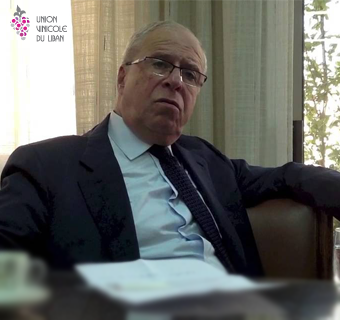On Lebanese Wine…Q&A with Mr. Zafer Chaoui, UVL President


1- What, in your opinion, is one thing that truly distinguishes Lebanese wine?
The exceptional weather permits for the Lebanese wineries to produce natural wine with almost no use of chemicals along with a unique terroir in altitude.
2- How does the terroir play a role in differentiating between wines from different areas in Lebanon? How are wines from the Bekaa, for example, different than those in North Lebanon?
The terroir plays a very important role in the taste of the wine (its phenolic composition, fruitiness, …etc). The terroir is affected by several factors including altitude, orientation, soil composition and topography.
3- How do wine-making techniques affect the resulting flavor of the wine?
The temperature of fermentation is fundamental in the quality of the wines especially for the Rose and White as it affects the aromas and the flavors directly. As for the Red wines, the skin maceration period determines the structure of the wine.
4- Why is Lebanese wine perceived as expensive by some drinkers?
Lebanon is an extremely small wine producing country and therefore we have no other choice but to produce high quality wines. Besides, we need to compare what is comparable (we can’t compare a cheap Bordeaux or a Chianti with a “Chateau” wine). Furthermore, we shouldn’t forget that Lebanon doesn’t produce colored bottles, corks, or cap, and so all of the packaging material has to be imported which leads to a cost increase.
5- Why do you think some Lebanese wine drinkers mention that some wines give them headaches?
What actually causes headache in wine is the high concentration of Sulfur Dioxide, which is not the case in Lebanese wines since most of the wineries use less than the permitted concentration. I think this has more to do with an unfounded propaganda. Having said that, we need to highlight that the Lebanese wines are exported to more than 45 countries requiring precise chemical analysis.
6- What makes Lebanese wine worth trying when compared to other wines?
Lebanese wines continue to gain popularity all over the world because of their high quality, the concentration of flavors, and structure. Every year, we witness an increase in the export of the Lebanese wines all over the world.
7- Where is wine-making in Lebanon heading? That is, what are the current trends when it comes to Lebanese wine-making and wine consumption?
No doubt that Lebanese wines are increasingly in demand, domestically and internationally, which leads to an increase in production. However, Lebanon is a small country and the narrow available surface will eventually limit the production. Nowadays, the trend in wine-making tends towards more fruity wines with less use of oak and lower concentration in tannins.
